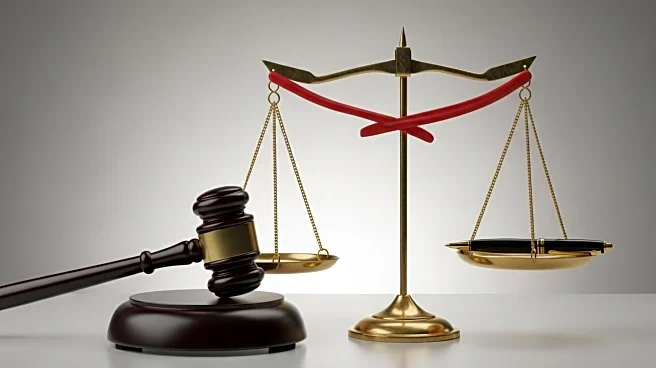What is the story about?
What's Happening?
Ty Cobb, a former White House attorney under President Trump, has expressed concerns about the recent suspension of comedian Jimmy Kimmel by ABC. Cobb likened the situation to Russian President Vladimir Putin's early efforts to suppress critical media outlets and independent TV channels. He noted that these outlets were systematically silenced, bought out, or shut down. Cobb also drew parallels to historical events in 1939 when Dr. Goebbels, under Hitler's orders, removed comedians from German airwaves for satirical criticism of the government. Cobb criticized President Trump for targeting late-night comedians, suggesting that Trump's actions are driven by vengeance against those who offend him.
Why It's Important?
The comments by Ty Cobb highlight concerns about freedom of speech and the potential erosion of constitutional norms in the United States. The comparison to Putin's media suppression tactics underscores fears that political leaders may increasingly seek to silence dissenting voices. This situation could have significant implications for media freedom and the role of comedians and satirists in political discourse. The involvement of FCC officials, such as Brendan Carr, in these actions raises questions about government influence over media companies and the protection of First Amendment rights.
What's Next?
The suspension of Jimmy Kimmel and the broader implications of media silencing may prompt further debate and scrutiny from civil society groups, media organizations, and political leaders. There could be calls for legislative or judicial action to safeguard freedom of speech and prevent government overreach in media regulation. The situation may also lead to increased activism and advocacy for media rights, potentially influencing public policy and political discourse in the United States.
Beyond the Headlines
The comparison to historical events and foreign political tactics raises ethical and cultural questions about the role of satire and comedy in challenging authority. It also highlights the potential long-term impact on media diversity and the ability of comedians to engage in political commentary without fear of retribution. The situation may contribute to a broader cultural shift in how political criticism is perceived and tolerated in society.
















